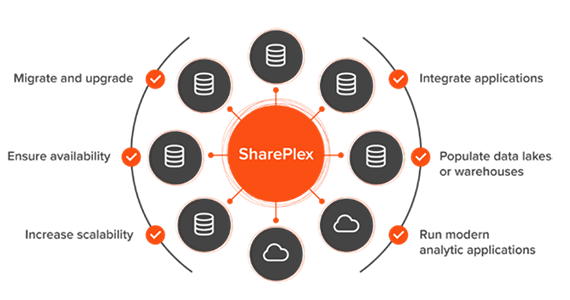Offloading Reporting

So how do you access data from the production database without affecting database performance?
Expensive hardware upgrades or maintaining several databases exclusively for reporting and analytics may seem like good ideas. But these approaches only increase the cost of doing business. You need a more affordable, impact-free approach to access business-critical data.
You need to offload reporting and analytics
By offloading reporting and analytics, you can easily and affordably tap into the full potential of your data – without sacrificing database performance. You can use data replication for offloading reporting to a separate system, without purchasing and maintaining dedicated databases just for analytics. This technique allows you to split online transaction processing and database reporting to a data warehouse instance that is constantly maintained to reflect the activity on the production system. That means business users and data scientists can analyze and report on accurate, real-time data without creating database contention. This approach also helps with a number of additional scenarios.
Data replication supports a variety of use cases for reporting.
Centralized reporting
Do your remote users have trouble accessing centralized data? Instead of having them log on to the already taxed production system to run queries, reports and analytics, you can replicate the data to a database system of their choosing. They can then perform local queries to access the data they need. This offloads query processing and accelerates data access.
Data distribution
You can increase flexibility by replicating some tables to a single target location, while replicating other tables and sequences to other target systems. This scalable approach supports target systems in different locations.
Cascading
With data replication, you can distribute departments across different systems to improve online transaction processing and reporting. This approach also supports multiple systems updating the same tables. If a conflict is detected, it invokes a user-defined conflict resolution routine.
